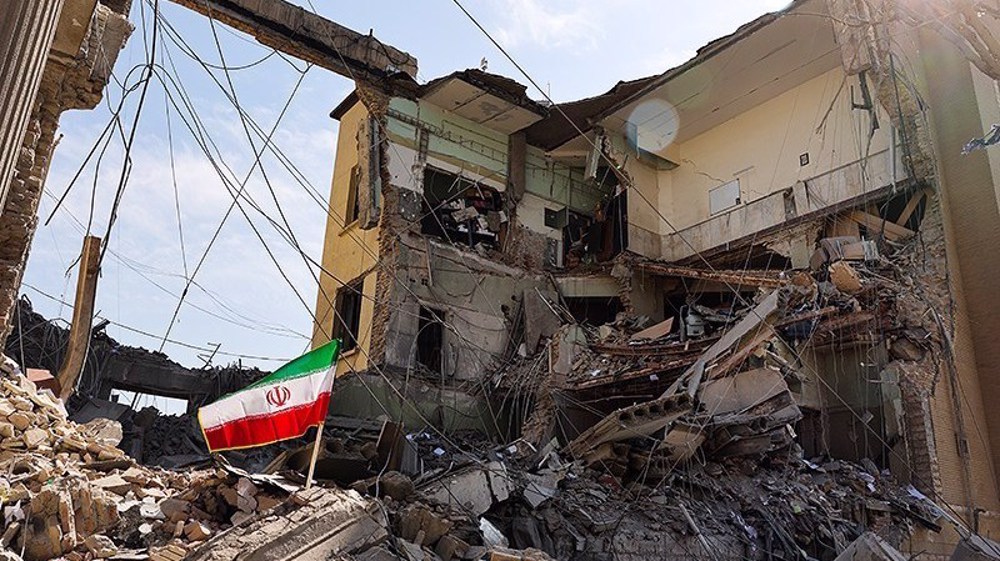Terrorism, climate change top list of challenges facing US military
The US Defense Department Inspector General's annual list of challenges for the military in the next year has highlighted the troop withdrawal from Afghanistan, terrorism as well as the long-term threat to military installations and operations due to climate change.
Pointing to the potential problems of Trump administration’s push to withdraw US troops from Afghanistan, the 101-page IG report expresses concern that the move would lead to the resurgence of terrorist groups in the country despite the persisting rise of terror attacks across the country ever since it was subjected to a US-led military invasion in 2001.
"In Afghanistan, two decades of US military operations have weakened al‑Qaeda and ISIS affiliates operating in the country, but there remains a potential for their resurgence following the planned withdrawal of US troops," the report claims. "Meanwhile, violent extremist organizations continue to expand their influence in Africa and Asia."
"Maintaining the US military's advantage while balancing great power competition and countering global terrorism requires the DoD to focus on enhancing interagency collaboration and rebuilding military capabilities that may have atrophied the past 20 years," the IG report states.
"The challenge for the DoD is to rebuild capabilities to effectively compete with near‑peer rivals and other adversaries, while continuing to combat terrorists and insurgents," it further claimed, voicing concerns that the ongoing terrorist threat would be downplayed if DoD commits most of its attention on containing China and Russia.
"As the DoD shifts its attention and resources to great power competition, it will need to retain the agility and capability to combat persistent and evolving threats from violent extremist organizations," the document states, claiming that Daesh (ISIL) terrorists – which the US has protected against efforts by Iraqi and Syrian security forces to reign them in – are regrouping following the 2019 death of their leader Abu Bakr al‑Baghdadi.
The report further repeated US claims that Iran remains a state supporter of terrorism around the world in face of growing evidence that Washington continues to be engaged in terror assassinations and sponsoring mercenaries worldwide to conduct coups and terrorism against governments and groups that resist US interference.
Moreover, under the heading "Strengthening Resiliency to Non‑Traditional Threats," the report also underlines the impact on the US military of "pandemics [and] extreme weather events, and the national security implications of a changing environment."
"Rising sea levels, extreme weather such as flooding, wildfires, or hurricanes, and a melting Arctic will require the DoD to consider the security, readiness, and financial implications of these non‑traditional threats," according to the report, which was originally released on November 19.
Additionally, "droughts, water scarcity, and other natural resource limitations" brought on by climate change "offer opportunities for adversaries, competitors, and violent extremist organizations to exert their influence in pursuit of their goals."
The report’s list of top ten challenges for the US military in fiscal year 2021 includes: ‘maintaining the advantage while balancing great power competition and countering global terrorism’, ‘building and sustaining DOD’s technological dominance’, ‘assuring space dominance, nuclear deterrence, and ballistic missile defense’ and ‘enhancing cyberspace operations and capabilities and securing the DOD's information systems, network, and data.’
UN experts condemn unlawful US-Israeli aggression against Iran
US war on Iran burns past $1bn in early days, with total projected to exceed $95bn
US officials warn of challenges posed by Iranian drones
'We warned repeatedly about the limit to our patience': Hezbollah leader
IRGC announces 'blinding' US, Israel's eye in region; vows harsher retaliation coming
Iraqi resistance leader urges Americans to ‘reclaim’ country from Israeli ‘puppet Trump
Iran blasts US-Israeli use of autonomous killer systems against civilians as 'war crime'
US-Israeli aggression left Tehran with no choice but to defend Itself: President Pezeshkian














 This makes it easy to access the Press TV website
This makes it easy to access the Press TV website